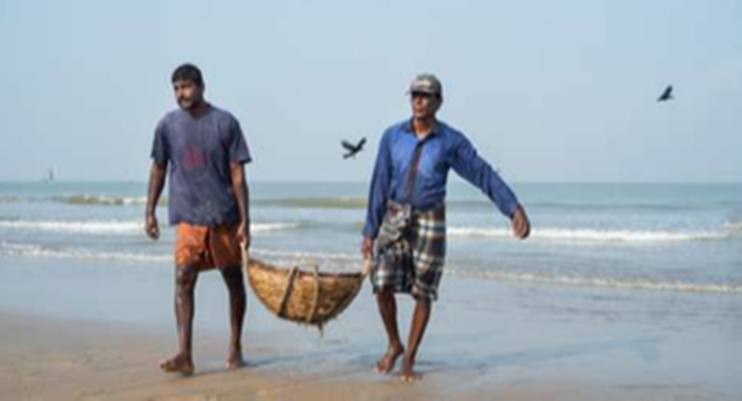CHALLENGE
District Gampaha and Puttalam are located near the coastline and lagoon. With its location, livelihood of local people in both districts is closely related with fisheries. Like in other areas, the livelihoods of coastal small-scale fishers are among the most insecure and vulnerable, which is also the case in District Gampaha and Puttalam. The absence of credit facilities and limited savings products were the case in both districts. There were micro-finance institutions (MFIs) whose roles were undertaken by cooperative societies. However, these institutions did not play its functions. The staff were neither skillful nor committed to their responsibilities and most MFIs had low institutional capacity which resulted in poor loan portfolio management, weak financial management and tracking systems, and high deliquency rates. At this point, MFIs saw small-scale fisheries as high risk. Therefore, the fisheries had limited access to formal micro-finance institutions.
To tackle this challenge, the local governments of District Gampaha and Puttalam gained the support of national level government through the Department of Fisheries and Aquatic Resources and collaborated with local institutions such as Planet Guarantee, Sri Lanka Savings Bank, Regional Development Bank, Janashakthi Insurance, Rajeeda Holdings, and Human Resource Foundation, as well as the Spanish Agency of International Cooperation for Development (AECID) through the FAO trust-fund project Regional Fisheries Livelihood Programme (RFLP) for South and Southeast Asia, to present a broad spectrum of micro-finance services including savings, credit, and micro-insurance.
INNOVATION
This collaboration strengthened the existing institutions, capacity of key stakeholders, and development of loan policies and documents.
- Establishment of Fish Finance Network of Microfinance Associations (FIFNA)
- to provide greater economies of scale
- for better access to credit, micro-finance services
- to facilitate in dealing, negotiating, collaborating with national level micro-finance and insurance service provider
- Service Cluster Network (SCN) Formation
- to ensure logistical convenience
- to effectively monitor progress to promote healthy competition between Micro Finance Institution (MFI)
- to provide forum to work together and exchange knowledge
- Establishment of information system management
- Introduction of credit life insurance scheme, micro-finance reporting system
- Provide training and awareness raising on micro-finance services
- Development of loan policies and documents
- Formation of six credit and saving centres
IMPACT
- Planet Guarantee/Janasakthi insurance bestowed FIFNA as accredited agents for the issuance of micro-credit insurance policies.
- The formation of MFI Clusters and FIFNA resulted in better transparency of activities.
- Regional Development Bank disbursed 428 loans with a total value of LKR 17.2 million.
- Fisheries Cooperative Societies disbursed 5,359 loans with total value of LRK 65.6 million.
- 100 per cent loan recovery rate maintained at a number of Fisheries Co-operative Societies (FCS) and credit and savings centres.
- Accurate and transparent reporting systems in FCS enabled them to attract more members. In 2012, it was registered that a total of 64 new members (fisheries) were registered, reflecting increasing number of fisheries gaining access to loan.











